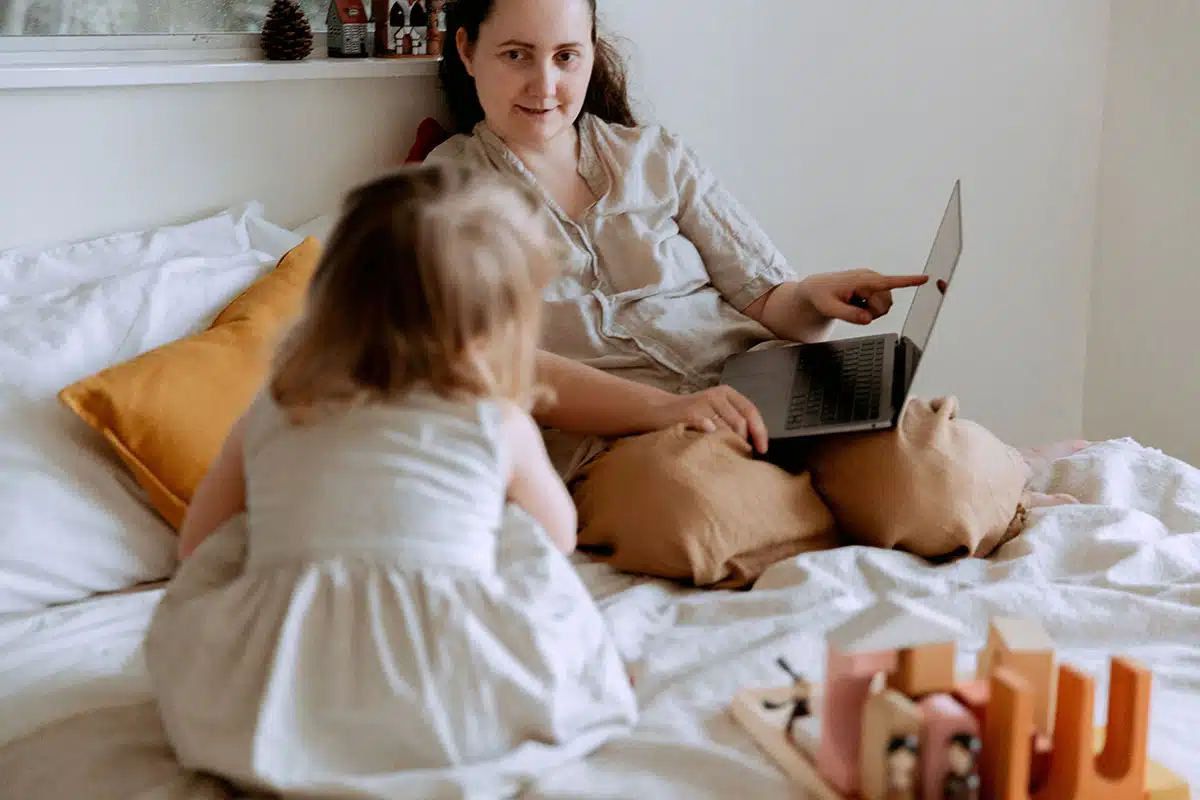Parents of Children With ADHD
Attention-deficit/hyperactivity disorder (ADHD) affects one in 20 Australian children (Attention deficit hyperactivity disorder [ADHD]). Raising a child with ADHD can feel like a rollercoaster ride for parents. It’s more than just navigating a child’s “hyper” moments or encouraging them to listen. ADHD affects how a child’s brain grows and functions, which can make fitting into the demands of school, social interactions, and daily activities significantly challenging. But with the right strategies, resources, and support, parents of children with ADHD can learn to help their children thrive. This blog post will help you understand the condition so you can support your clients who are parenting kiddos with ADHD.
The ADHD Presentation
A proper diagnosis from a mental health professional is the first step a parent can take to set their child up with appropriate support. That takes recognizing the symptoms. Common symptoms of ADHD in children include challenges with paying attention, impulsivity, and hyperactivity. Observations at home or reports from teachers about a child’s difficulty following instructions or staying on task in the classroom could be one of the first indications to a parent that their child has ADHD.
DSM-5 criteria for ADHD in children are divided into a section for inattention and a section for hyperactivity/impulsivity (Symptoms and diagnosis 2022). Criteria for inattention include:
- Trouble paying attention to details
- Appearing not to listen when addressed
- Difficulty or failure to finish tasks like schoolwork or chores
- Trouble with organization
- A strong aversion to tasks that take awhile
- Often losing items for those tasks, like school supplies or notebooks
- Is easily distracted or forgetful with daily activities Criteria for hyperactivity/impulsivity include:
- Fidgeting/squirming when seated
- Difficulty staying seated for the duration of a lesson or task
- Difficulty with quiet play
- Appears “on the go” and highly physically active
- Has challenges with waiting their turn in play or discussions (this may include interrupting, blurting out, )
The frequency of the above symptoms and their duration and impact on the child’s functioning, will determine whether the criteria are met for a diagnosable disorder. The type and combination
of symptoms will determine whether an ADHD diagnosis fits into one of the three types of presentations: Predominantly Inattentive, Predominantly Hyperactive-Impulsive, or Combined.
Parenting Strategies
One of the most essential strategies parents can use to help their child succeed is creating a consistent, structured environment. Have a daily routine and stick to it as much as possible. Keep a consistent bedtime, wake-up time, mealtimes, and homework times. This consistency enables children with ADHD to feel more secure and focused. Clear expectations and boundaries are also vital to parenting children with ADHD. Keep in mind that positive reinforcement through praise can go a long way.
Parenting a child with ADHD is not about molding a child to fit into routines that suit neurotypical children. Accommodations can be made at home and school to mold the environment into a place that better suits the ADHD child. At home, this may mean breaking necessary tasks into small chunks that can be done throughout the day rather than all at once. Creating a lifestyle that promotes physical activity can help a hyperactive child release energy.
At school, it may be helpful for a child to use a fidget toy while engaging with instructions or seated tasks. Incorporating physical movement into lessons can make them more engaging and add the benefit of being healthier than sitting in a classroom for hours. Plenty of breaks and time to complete assignments can offer the flexibility an ADHD child needs to engage with learning in a way that works for them.
Accepting that a child with ADHD will be different than other children is important. This helps parents to be less frustrated when challenged by children with ADHD and accept the other talents that the child brings – including boundless energy, extra excitement for life and creativity.
Treatment
Medications for ADHD can be very effective in allowing your child to develop the skills they have difficulty with. For someone with ADHD, medication can be like spectacles to someone who is short-sighted. However, it is important to combine this with non-medication therapies.
For example, research has shown that behavior modification therapies can be successful when the child has an active role in deciding on the program and its goals. Therapies that aim to change behavior by punishment generally do not work. The key here is to reward the child for good behavior. A goal of family engagement is to lower stress and expressed emotion, and certainly to stop any violence or aggression.
Another example proven to be quite effective is cognitive therapy which helps the child manage their thinking and problem-solving skills. Teaching the child techniques of self-control and incorporating role-play during these sessions can really assist the child in managing their emotions by looking at possible consequences of action in different scenarios.
Conclusion
Working closely with the child’s teacher and other mental health professionals can help a parent find the best accommodations and strategies for their child and help the parent feel less alone. Keeping up with the child’s care team is important as the child grows and treatment approaches may need some changes.
Although it can be challenging to parent a child with ADHD, engaging with the right resources can unlock a child’s potential. The ADHD symptoms that make a child different from their peers can also be used to their advantage as they grow into adults with creativity, vibrant energy, and the ability to think outside the box.
References
Attention deficit hyperactivity disorder (ADHD). The Royal Children’s Hospital Melbourne. (n.d.).
Retrieved February 1, 2023, from https://www.rch.org.au/kidsinfo/fact_sheets/Attention_deficit_hyperactivity_disorder_ADHD/#:~:text=Attention%20deficit%20hyperactivity%20disorder%20(ADHD)%20is%20a% 20long%2Dterm,children%20in%20Australia%20have%20ADHD.
Centers for Disease Control and Prevention. (2022, August 9). Symptoms and diagnosis of ADHD. Centers for Disease Control and Prevention. Retrieved February 1, 2023, from https://www.cdc.gov/ncbddd/adhd/diagnosis.html












